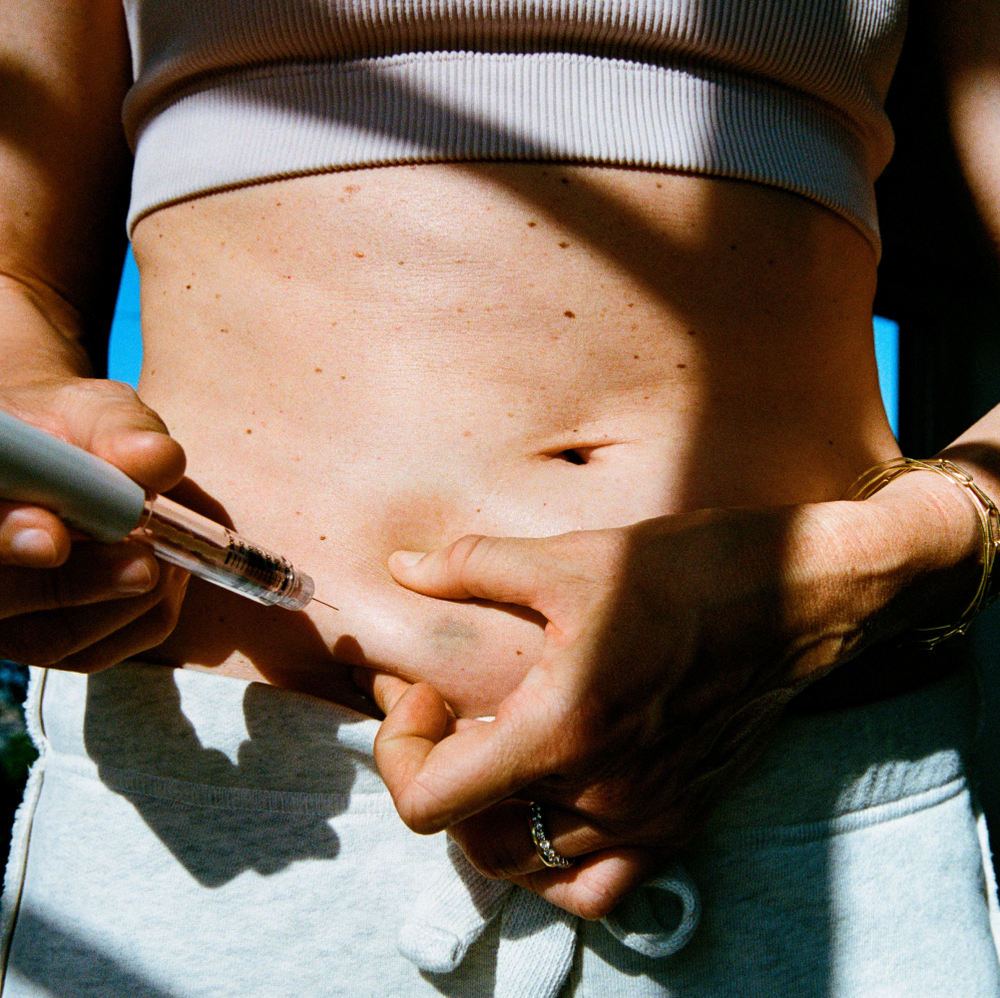Understanding how age impacts your ability to conceive doesn’t mean racing against a clock—it means making informed, intentional choices. Whether you’re actively trying, weighing your options, or just want to understand your timeline, this guide is here to help.
Does Age Impact My Fertility?
In short一yes. A woman’s fertility declines as she gets older.
A decline starts around 32 and decreases more rapidly after 37. By 40, fertility rates drop to half of what they were in the early 20s.
It can be empowering to consult with your doctor and request specific information about age-related fertility decline and options.
What should I be aware of?
Declining fertility rates can impact your chances of getting pregnant and your risk of having a genetically abnormal pregnancy also increases. So, it’s important to consider:
-
If and when you want to carry a baby and have a baby that's genetically related to you (given that people can have eggs or embryos from other people if they struggle to conceive with their own eggs).
-
The potential challenges and risks of carrying a baby as you age.
-
The support available from your healthcare provider.
-
Fertility treatment or preservation options, such as egg freezing.
How can my healthcare provider help?
During your routine check-ups, they can dedicate time to specifically discuss age-related fertility decline and how it may affect you. They may give you additional educational resources and discuss your family planning goals.
If needed, they may also offer referrals to fertility specialists, where you can explore your options, such as fertility treatments or egg freezing.
What are some fertility treatments?
In vitro fertilization (IVF)
You go through a process of giving yourself injections to stimulate your ovaries to produce multiple eggs. These eggs are then retrieved by your doctor and fertilized by sperm in a laboratory to create embryos.These are transferred back into the woman’s uterus.
Intrauterine insemination (IUI)
A procedure where sperm is placed directly into the woman's uterus around the time of ovulation to increase the chances of fertilization.
Ovulation induction
The use of fertility medications to stimulate the ovaries to produce and release eggs.
Donor eggs
Eggs from a donor are fertilized with the partner's sperm and transferred into the woman's uterus.
Donor embryos
Donor eggs and sperm are used to create embryos that get transferred into the woman's uterus.
It’s important to discuss any treatments with a fertility specialist to find the best treatment based on your age, fertility status, and individual circumstances.
How can egg freezing help?
Egg freezing, also called oöcyte cryopreservation, is a procedure where a woman's eggs are retrieved, frozen, and stored for future use. The quality of the eggs remains the same as at the time of freezing.
When a woman is ready to have kids, her frozen eggs are fertilized with sperm in a laboratory to create some embryos. These are then transferred back into her uterus after her uterus has been prepped with medications to carry a pregnancy. Since the eggs were frozen at a younger age, they may have a higher chance of leading to a successful pregnancy.
Egg freezing may be beneficial if you aren’t ready for kids, it’s important for you to have children that are genetically related to you, and want to keep the quality of your eggs. However, egg freezing does not guarantee that you will have a successful pregnancy down the road. Be sure to discuss the benefits, risks, and costs with a fertility specialist.
$49.95
$49.95
$39.95
Shop the Article:

Conception Support Pack*
/ Month
Shop Now

Egg Freeze Support Pack*
/ Month
Shop Now

Fertility+ Support
/ Month
Shop Now
How do I talk to my doctor about this?
Here are a few sample scripts that might be helpful to approach with your care provider.
“I've recently started thinking about family planning and I wanted to discuss this with you to better understand my own fertility options.”
“Are there any specific fertility tests or treatments that you recommend for someone in my situation, or should I consider speaking with a fertility specialist?”
“Can you provide more information about egg freezing and its potential benefits, risks, and costs?”
“Are there any resources, support groups, or educational materials you recommend about age-related fertility decline?”
Takeaways
Let’s look back at a few key takeaways.
-
A woman’s fertility declines with age, starting to decline more around 32 and more dramatically at age 37.
-
By age 40, fertility rates drop to half of what they were in the early 20s.
-
Fertility treatments and egg freezing are options that may help age-related fertility decline.
There’s no one “right” time to start a family. But there is power in knowing how fertility shifts with age—and how modern medicine can meet you where you are.
Resources:
Female Age-Related Fertility Decline (Joint with the Practice Committee of the
American Society for Reproductive Medicine) (Obstet Gynecol 2014;123:719–21)
This article is for informational purposes only. It is not, nor is it intended to be, a substitute for professional medical advice, diagnosis, or treatment and we recommend that you always consult with your healthcare provider. To the extent that this article features the advice of physicians or medical practitioners, the views expressed are the views of the cited expert and do not necessarily represent the views of Perelel.



















